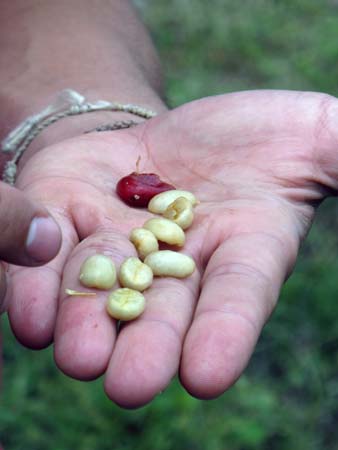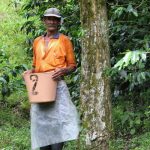Bitter Coffee Can Come from Unripened Beans
Jesús Bedoya, a coffee roaster and brewer in Salento, Colombia, loves coffee and is committed to bringing quality coffee to the world, one cup at a time. Unhappy with the bitter, weak brew served in his home country of Colombia, he is passionate about first educating his own countrymen to enjoy an excellent cup, then helping them spread that delight to the rest of the world.
What makes coffee bitter? There are many views on this hot topic, particularly since coffee enjoys the second highest level of trade for a commodity, just behind oil. Here is a list of some of the usual causes that he mentioned to us, followed by his viewpoint that is not so well known:
- Bean quality. Robusta beans are more bitter than the Arabica variety. You get what you pay for. Colombian coffee farmers grow the Arabica variety.
- Caffeine. Yes, caffeine is said to account for about 17% of the bitter taste.
- Over-roasting. Yes, andn yes. Why in the world does a coffee roaster purchase top quality Colombian Excelso coffee or Kona coffee and roast it so long it tastes burned? Therein lies the mystery and it will be discussed below.
- Brewing with water that has been boiled too long.
- Mixing many varieties and qualities of coffee. American canned coffees may be Colombian but they are bitter because they are a mishmash.
- Too little ground coffee used. Skimping on coffee can create bitterness.

Although it is more expensive, his pickers are instructed to pick only the red, ripe coffee cherries, making a second pass to pick those that ripen later.
Jesús adds one more: picking and processing coffee cherries (each containing two beans) before they are truly ripe. Although it is more expensive, his pickers are instructed to pick only the red, ripe coffee cherries, making a second pass to pick those that ripen later. This, he says, is what separates truly superb coffee from good coffee. Grabbing a handful of beans from one of the pickers that work for his father, he had a handful of almost all red cherries. Those we saw from pickers at other coffee farms contained a lot of green beans.
While this is something we have no control over when we purchase our beans far from the growers, this is a reason to patronize coffee roasters who specialize in fair trade coffee and who visit the growers before they buy. Talk with them to find which coffee growers follow this picking standard.
Does it add to the cost? You bet. Is it worth it? Although it depends on whether you savor your cuppa or not, you will notice the difference when you visit Jesús Martín Café in Salento or nearby Cocora, Colombia. Having become accustomed to his quality coffee, we actually gagged when we had coffee at a Juan Valdez shop in Popayan. It was not only bitter, it tasted burned.
Unless you live in Salento or can get true quality beans, here is a good trick: to remove a lot of the bitterness from other coffees: put a pinch of natural sea salt in your glass or brewer. You will be glad you did.
By the way, to clarify misinformation I see on the web, the name Martín in the coffee brand and shop is that of Jesús’s son. It is not a middle name.


Wow, this is some great information. I always wondered what the effect of early picked beans would be. I understand the raisin lot and you filled in another piece of the pie. Thanks